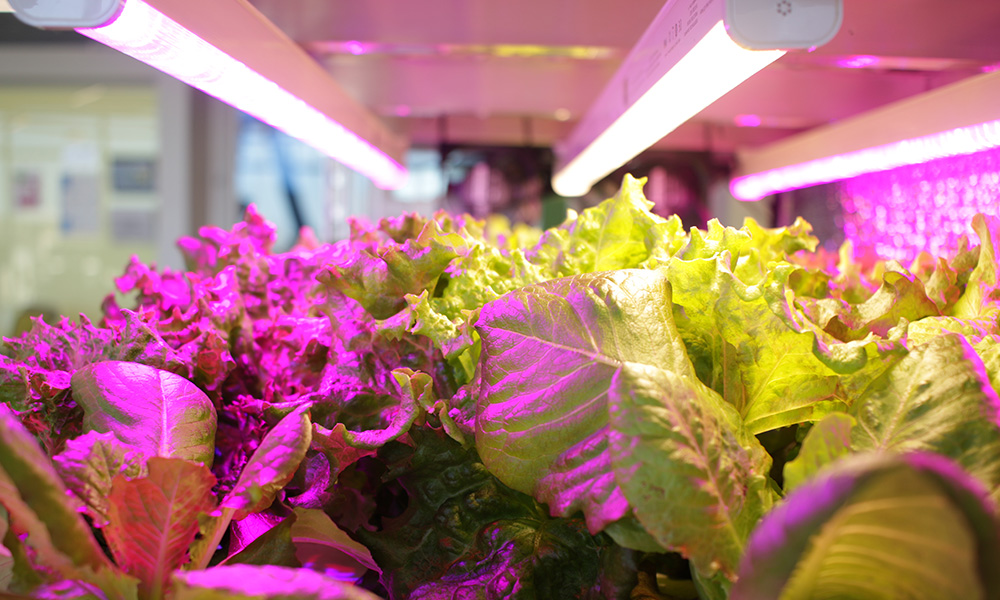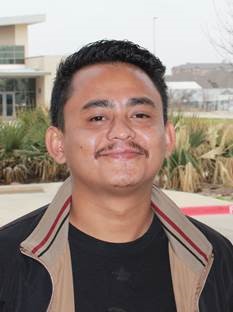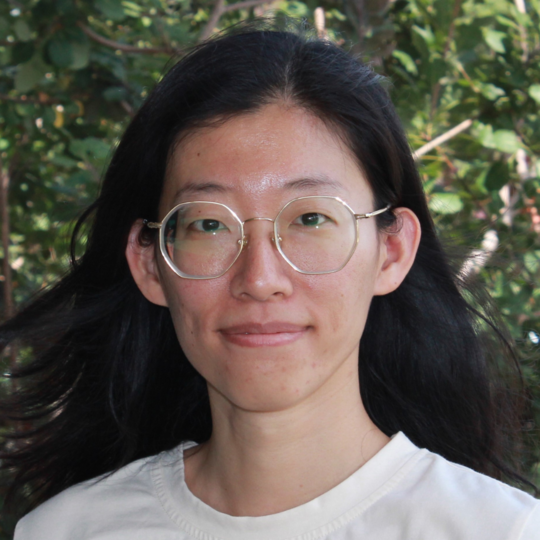
Urban Horticulture Research
Advancing controlled environment agriculture
The urban horticulture research program led by Dr. Genhua Niu in Dallas focuses on developing production and best management practices to address challenges facing the emerging controlled environment agriculture (CEA) industry.
Controlled systems for urban agriculture include peri-urban (suburban) greenhouses and indoor vertical farms. Niu’s research explores plant production in systems that implement existing and emerging CEA technology at varying degrees.
Program Faculty and Staff

Genhua Niu, Ph.D.
Professor, Principal Investigator
972.952.9226
Publications
A full selection of Dr. Niu’s publications is available at TAMU Scholars along with information about researchers and peer-reviewed publications across The Texas A&M University System.

Sangjun Jeong
Graduate Research Assistant

KC Yubraj
Research Associate

Anya Raju
Non-affiliated Student Worker

Jun Liu, Ph.D.
Postdoctoral Research Associate

Awais Ali
Visiting Scholar

Noor Khan
Graduate Research Assistant
Plant Factory
The 2019 2ⁿᵈ edition of Dr. Niu and her colleagues’ book Plant Factory: An Indoor Vertical Farming System for Efficient Quality Food Production is now available for purchase. Click here or on the image to go to the book’s webpage.
Plant Factory
Plant Factory Basics, Applications, and Advances takes the reader from an overview of the need for and potential of plant factories with artificial lighting (PFALs) in enhancing food production and security to the latest advances and benefits of this agriculture environment. Edited by leading experts Toyoki Kozai, Genhua Niu, and Joseph Masabni, this book aims to provide a platform of PFAL technology and science, including ideas on its extensive business and social applications towards the next-generation PFALs. Click here or on the image to go to the book’s webpage.

Research Areas

Plants growing hydroponically
Greenhouse crop production in hydroponic systems
Growing conditions such as light, temperature, and humidity fluctuate inside a greenhouse as seasons change. With these changes, crop performance and productivity also vary. Our research aims to address all these variables in developing best management practices for major greenhouse hydroponic production systems. These include nutrient film technique, deep water culture, and ebb and flow among others. Our efforts seek to reduce energy costs, maximize productivity and enhance produce quality.

A close-up of the vertical farm salad bar inside Urban Agriculture building at the Texas A&M AgriLife Center at Dallas
Indoor Vertical Farming
Unlike in greenhouses, the growing conditions of indoor vertical farms can be controlled precisely without influence from the outdoor climate. Plants in indoor farming systems grow under electric lights without the need for sunlight or soil. Our research in this area focuses on two key aspects: First, we seek to enhance yield and improve the nutritional quality of crops grown in indoor vertical farming systems by manipulating the light, temperature, and root zone nutrient management. Second, we look for opportunities to enhance sustainability and resource-use efficiency. We aim to develop technologies and management practices addressing the efficient use of electricity, water, fertilizers, and other resources.
Explore Controlled ENvironment Horticulture at Dallas
The AgriLife Extension Urban Horticulture program is part of a comprehensive effort at the Texas A&M AgriLife Research and Extension Center at Dallas to advance all aspects of crop production in controlled environments — delivering nutritious, delicious, and resilient food crops that are economically and environmentally sustainable.

